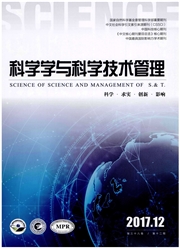

 中文摘要:
中文摘要:
在合作创新被普遍提倡的现有经济环境下,中小企业更多的选择独立创新。针对这一现象,展开了理论和现实上的探讨。侧重于分析内生溢出如何影响中小企业的舍作创新倾向。研究表明,中小企业与大型企业相比,专利难以提供有效保护并且在技术共享和关键技术交换安排方面不具有保障措施,因此考虑到舍作创新过程中的技术溢出风险,它们会更加倾向于选择保守商业秘密或者提高产品上市速度来控制技术溢出,这样中小企业在选择合作创新之前会陷入“囚徒困境”,降低合作创新倾向。
 英文摘要:
英文摘要:
Under the current economic environment that cooperation innovation is generally promoted, whereas SMEs choice independent innovation. In response to this phenomenon, the study makes a discussion about it on the theoretical and practical study. Past research assume that technology sion is with the increase of technology spillovers enterprises spillovers is an independent variable. The general concluwill tend to choose cooperation innovation. However, this study found that the spillover is influneced by the technical protection mechanisms that enterprises adopt. Under this assumption, the tendency of SMEs to choose cooperation innovation is analyzed. Research shows that the patent measures cannot effectively protect the core technologies of the circumstances. SMEs will choose commercial secrets or speed to reduce the risk of technology spillovers. Therefore, this study shows that with the increase of technology spillovers,the tendency of SMEs to choose cooperation innovation is lower.
 同期刊论文项目
同期刊论文项目
 同项目期刊论文
同项目期刊论文
 期刊信息
期刊信息
